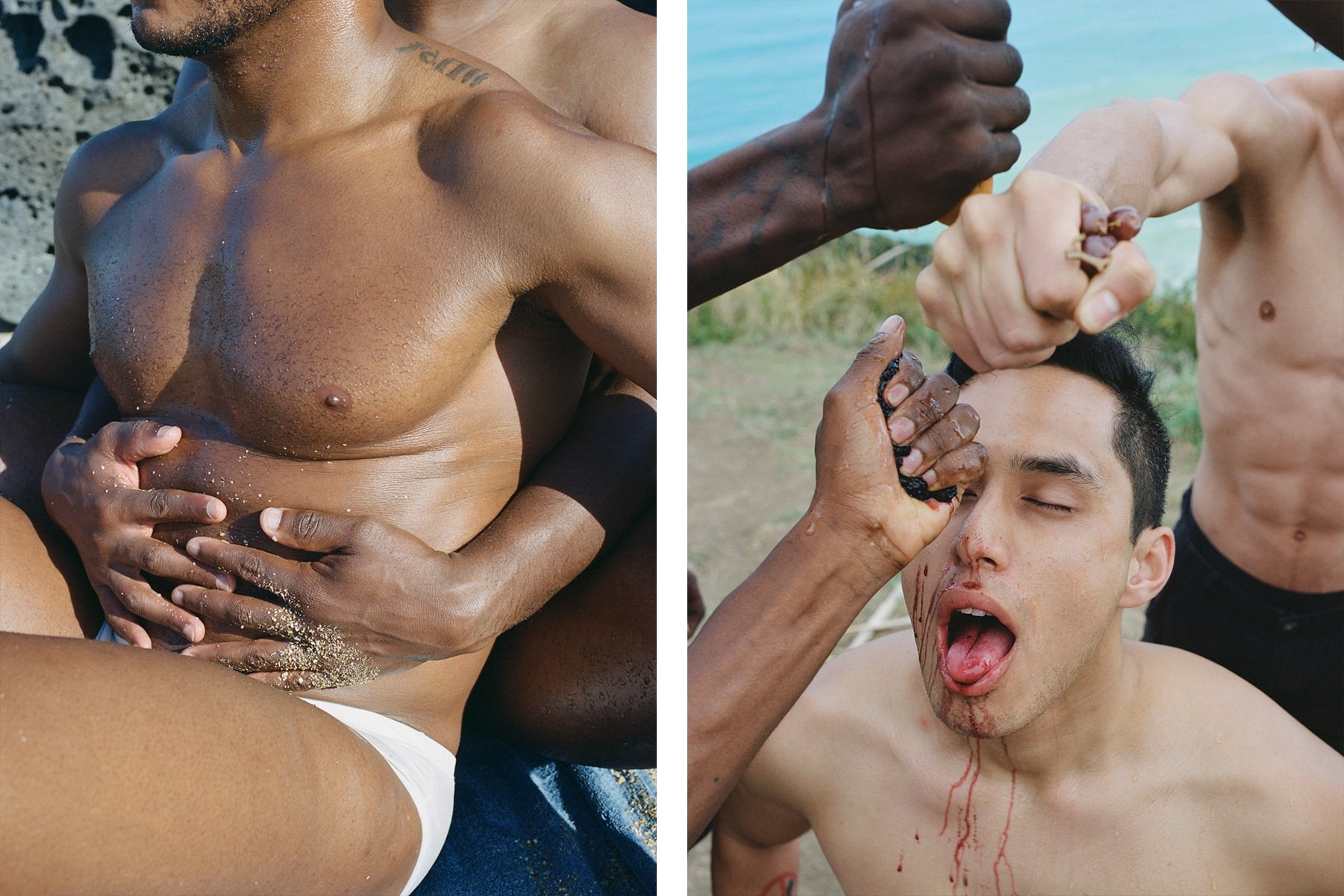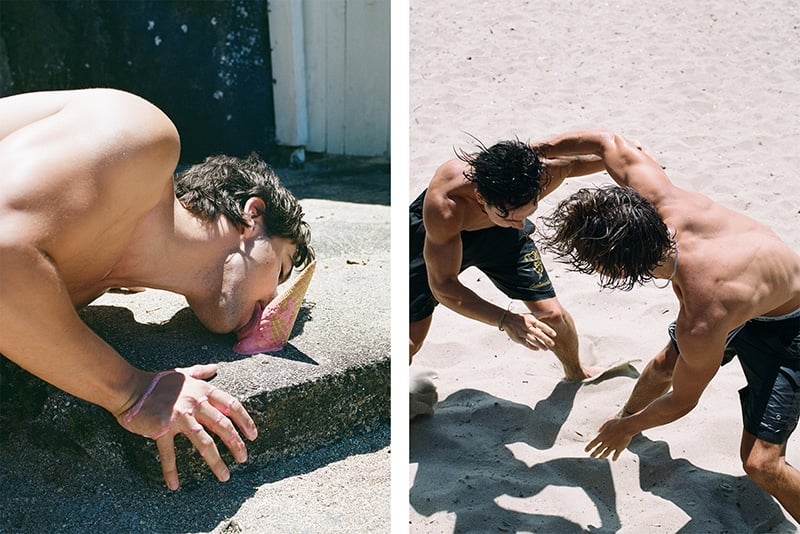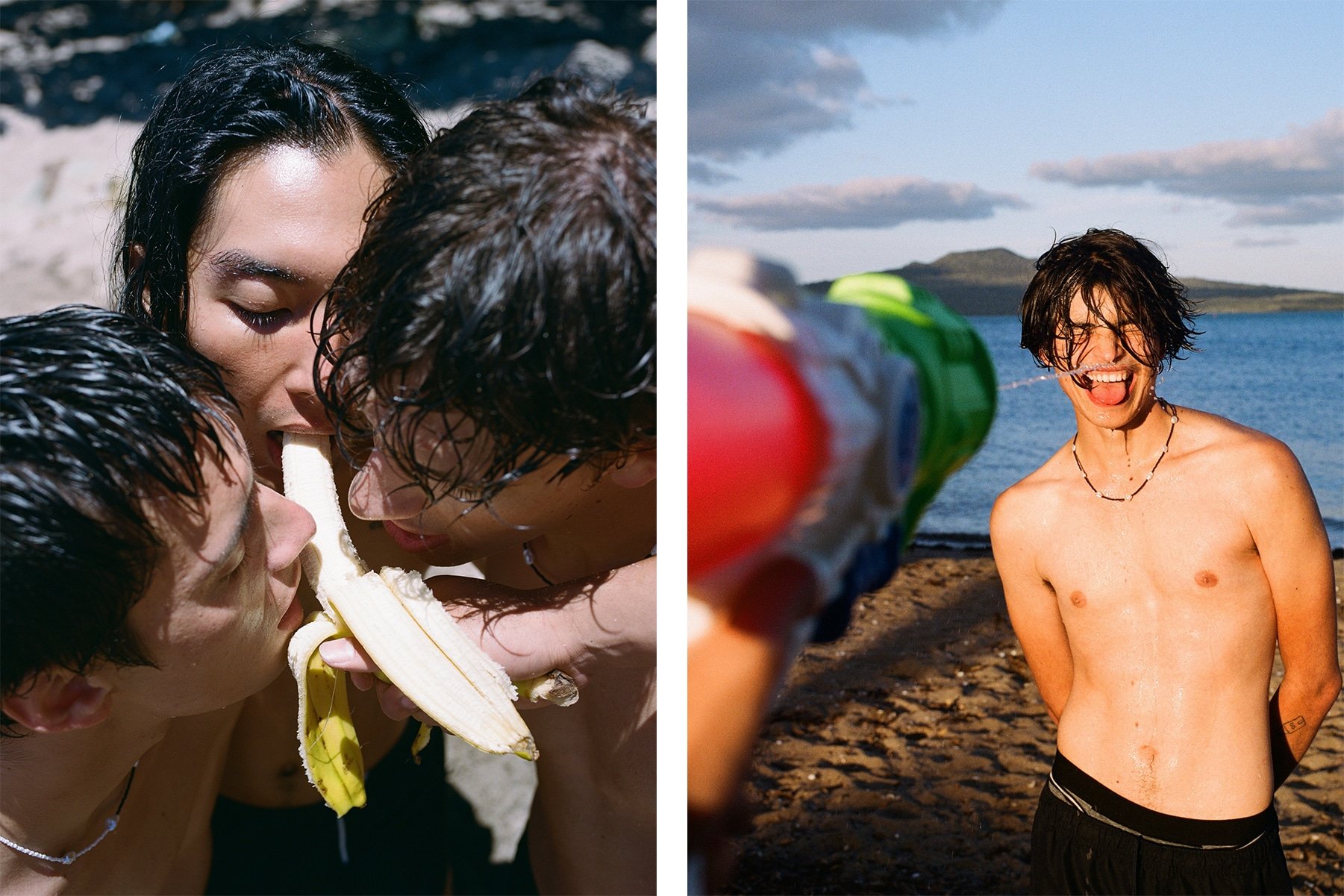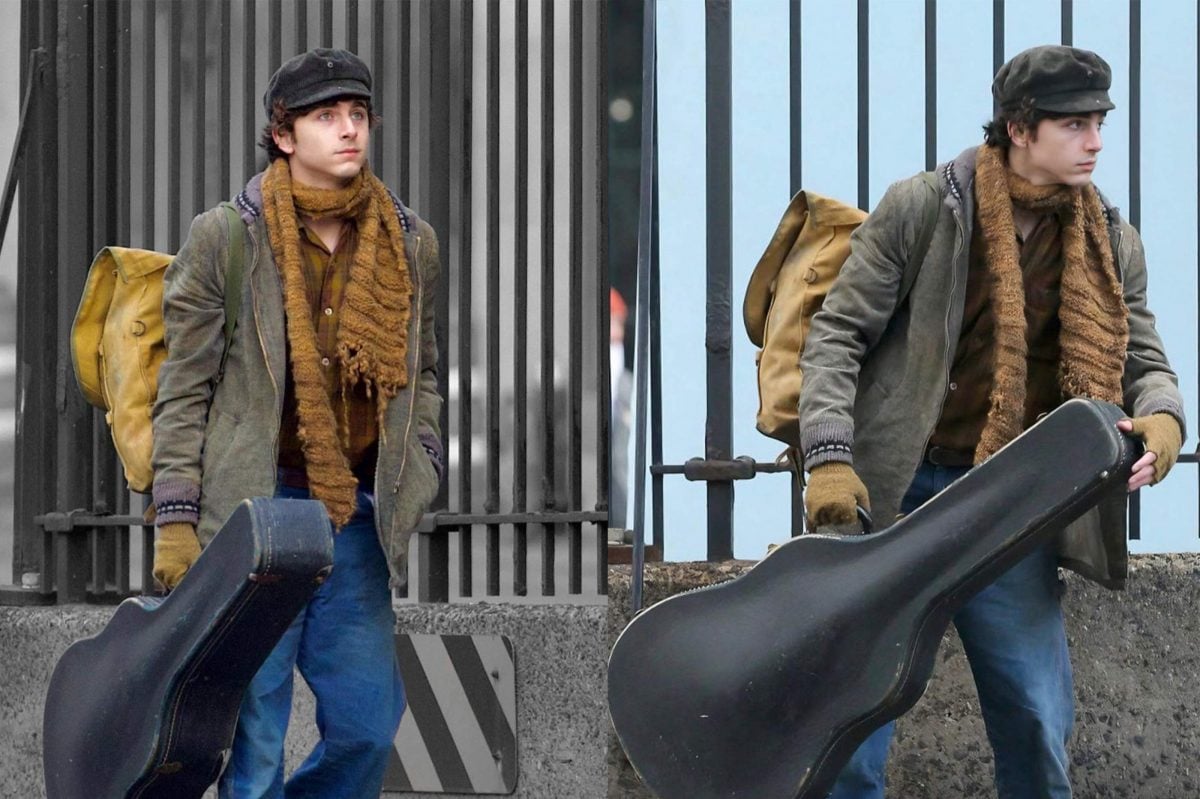
"Look at the tiles on the floor, the shapes the shadows make, the arches in old doorways, the way the waves break on the rocks. We take these little things for granted. Allow yourselves the pleasure of viewing beautiful things." For photographer Robert Tennent, documenting beautiful moments is a familiar space to play in.
For his first photo book, Come Back To Bed, themes of intimacy were a focal point in a collection of photographs that spoke of connection, trauma, healing, and tenderness. For Tennent's follow-up book, I'm Going To Miss You, tenderness is reinterpreted from the lens of friendship and nostalgia within a collection of 200 images. Images that communicate intimacy in ways we are not often able to access. Intimacy between lovers and friends. The sentiment of boyhood with a heavy emphasis on play, reverberating with touch and closeness. I'm Going To Miss You transports the viewer onto a beach in New Zealand, witnessing moments where Tennent has been able to capture the sweetest of gestures with undiluted nostalgia.

It is a break in a current, supercharged with both urgent emotion and a sense of serenity - like the welcome softness after a big cry. Tennent's latest body of work captures the fragments of masculinity that we are so often missing within our own experiences. Fluid and connected, Tennent captures it all.
Below, Tennent speaks to RUSSH about the heart of I'm Going To Miss You, the feeling of nostalgia, and playing with perceptions.

Can you talk a bit about the inspiration for the book?
I was sitting on the beach when I saw two young men wrestling. It was fascinating to watch two presumably straight men allowing themselves to play in a gentle and boisterous way. I wanted to capture these moments, candid and staged of men playing and exploring. The male form is beautiful and I wanted to capture it in a way that was not overly sexual but still has subtle undertones. I spent four months of summer just shooting beautiful men around New Zealand coastal towns, and 200 images later I have a body of work that documents my travels and creative eye.
Can you elaborate on the title, I'm Going to Miss You?
I published a book in 2018 which documented all the sexual partners I had following an assault. The book is called Come Back to Bed which was a quote from one of the lovers. In the book, I had quotes from the men scattered in-between images of them waking up, “You can stay as long as you like”, “Wake me up before you leave.” And one of them was “I’m going to miss you.” It stuck and describes the ways I feel towards summer, especially towards the end. I had many title ideas, Meet Me By The Water, Boys and Fruit, but none that stuck as much as this one does.
The themes of intimacy that were present in your last book seem to have taken on another meaning in this book. One more of friendship. Was this a conscious decision or a natural transition?
It was certainly a natural transition. After a few months in lockdown, touch became something we had to think about. Being intimate came with its own hesitations and we certainly had to relearn and reconfigure our old movements. It came naturally to focus and document these gentle intimate moments that we were deprived of. The power of a hug and kiss are all parts of life that make us feel good, so I wanted to do this in a less sexual and obvious way.
I love how the book really encapsulates unbridled male friendships. How do you think your perspective as a queer photographer lent itself to this idea?
I listened to a beautiful podcast featuring Ocean Vuong where he spoke on the power of language, specifically “no homo” as if we needed a warning or cure to allow ourselves to be gentle and affectionate towards each other. This was something that stuck with me and something I had experienced throughout my schooling years. It is a toxic mindset and to have a project that shows this softer and real side was certainly one of my goals. The book consists of men with different sexualities which is fun because I like to play with perceptions. I think it challenges us, the viewer to see these friendships in a different light.
There is a very present feeling of nostalgia when you see all of the images together. Was this feeling present when shooting, or do you feel it came later when compiling the images?
There were certainly days when I wanted time to stop and to just sit on the west coast and stare into the distance. I remember making my way up to Cape Reinga which is the furthest northern point of the country, I remember standing on top of the hill and crying. I was not upset at all, they were tears of joy. I am eternally grateful for this life I have been given, and to have had the resources and time to be able to travel and enjoy these beaches. I think the feeling will only get stronger the more time passes. I will look back at this book and miss this time in my life eminently.
What do you hope people take away from the book?
So many things. Take time to explore your home country. Allow yourselves the pleasure of viewing beautiful things. (in a non-creepy way). Observe your surroundings. Look at the tiles on the floor, the shapes the shadows make, the arches in old doorways, the way the waves break on the rocks. We take these little things for granted. Allow yourselves the pleasure of viewing beautiful things.
What drives you in your work?
I strive to capture the beauty in the little and simple things. Photography is the act of documentation of something. I want to create fashion work that is minimalist but can hold substance at the same time. I want there to be emotions in the work I do, to tell a story that you can’t read right away. Work that is weird and humorous. Images don't really understand but it doesn’t matter because it’s a beautiful image. Am I making sense?
What are you excited for?
I am excited to return to the ocean when it gets warmer. I am excited to eventually move to Sydney and to experience what summer has to offer there.
What scares you?
I am scared of loss. As I get older and speak less Vietnamese, I fear the loss of my native tongue. I am scared that one day, the language begins to sound foreign to me. I refuse to let it happen.



